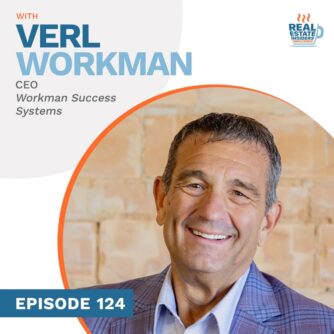In a recent conversation, industry experts James Dwiggins, Keith Robinson, and Chris George discussed the current housing market challenges, including housing shortages and affordability issues. Together they discussed insightful ideas and innovative approaches aimed at tackling these pressing concerns by highlighting potential solutions that could reshape the real estate landscape.
One key solution discussed involves repurposing commercial buildings into residential spaces. With the rise of remote work and the shift in preferences for urban living, many downtown areas have experienced a decline in commercial activity. Converting vacant commercial properties into condos or apartments can transform these centrally located spaces into attractive residential units. This repurposing strategy not only helps address the housing shortage but also revitalizes urban areas, creating vibrant communities.
Recognizing the financial challenges faced by millennials and first-time homebuyers, the three proposed innovative financing options. Chris George suggested a program called Hope Funded, which allows individuals to crowdsource their down payments. Additionally, discussions with the Department of Education are underway to explore the possibility of modifying student loans for first-time homebuyers. This modification would allow individuals to delay student loan amortization for ten years, aligning repayment schedules with the more financially stable years of their careers. Furthermore, Fannie Mae is considering a more reasonable equity share arrangement, reducing the burden on homebuyers by offering a fairer return on investment.
Another intriguing idea put forward by Keith Robinson is the concept of long-term mortgages. Although it may sound unconventional, extending mortgage terms to 100 years could result in more affordable monthly payments. While there may be challenges in finding secondary market investors for such mortgages, the concept opens up possibilities for exploring alternative approaches to addressing affordability issues.
Additionally, the upcoming shift in housing inventory due to the aging baby boomer generation provides an opportunity for generational housing. Families inheriting properties could opt to keep them as investment assets or make them available to millennials looking to trade up. This potential transfer of housing stock could alleviate some of the housing shortages.
The conversation among James Dwiggins, Keith Robinson, and Chris George sheds light on the current housing challenges in the United States. They highlight the need for creative and adaptable solutions to address housing shortages and affordability concerns. By repurposing commercial buildings into residential spaces, modifying student loans, exploring equitable equity-sharing arrangements, and considering long-term mortgages, the industry can adapt to the changing needs of prospective homeowners. These innovative approaches have the potential to bridge the gap between supply and demand, making homeownership more accessible and sustainable for millennials and future generations.
As the real estate industry continues to evolve, it is crucial for stakeholders, policymakers, and financial institutions to collaborate and implement forward-thinking strategies. By embracing innovative ideas and considering unconventional approaches, the goal of providing affordable housing for all can be within reach. Through these collective efforts, the housing market can become more inclusive, vibrant, and resilient, creating opportunities for individuals and communities to thrive.








